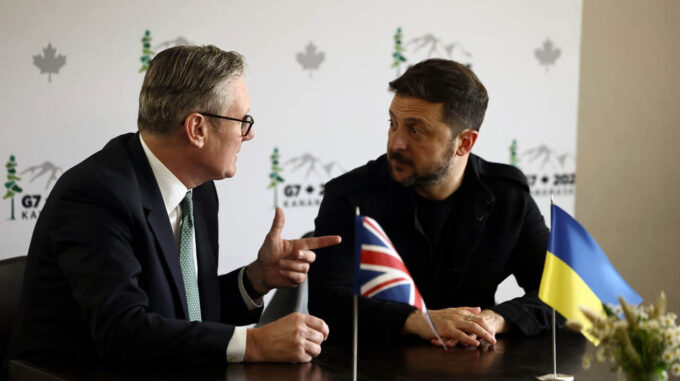Britain finances arms transfer to Ukraine for the first time using frozen Russian assets

For the first time in British history, the government has announced a decision to use part of frozen Russian assets for military assistance to Kyiv. According to Prime Minister Keir Starmer, this step opens up new opportunities to support Ukraine in its fight against the Russian aggressor. As part of the new aid package, financed by interest received from frozen Russian assets, Kyiv will be given 350 modern air defense missiles, which are manufactured in Britain and adapted to the needs of the Ukrainian army in just three months. This is the first time in history that a country has gone so far and used such resources to supply weapons. It is noted that these missiles will be used together with Raven systems - British anti-aircraft complexes that are already in Ukrainian hands. Five Raven systems have already been sent to Ukraine, and in total Kyiv will receive 13 such systems. This decision underlines the growing role of the UK in supporting Ukrainian forces and using all available means to deter Russian aggression. The British Prime Minister, speaking at the annual NATO summit in The Hague, stressed that "Russia, not Ukraine, must pay the price for Putin's barbaric and illegal war." He also added that Britain has every right to use frozen Russian assets to strengthen Ukraine's defense capabilities. "Ukraine's security is essential to our own security," Starmer stressed. British Defense Secretary John Healy noted that the new missiles could save lives, and their appearance in Ukrainian hands can be seen as proof of the ability of the British military and industrial sector to adapt quickly to modern military challenges. This aid package is the largest annual support for Ukraine from the UK and covers 4.5 billion pounds. This is a continuation of the agreements concluded in March, which provide for the supply of more than five thousand missiles for anti-aircraft systems and an investment of 350 million pounds to increase the number of drone deliveries several times. The background is that on the eve of the NATO summit, Prime Minister Starmer agreed with the President of Ukraine Volodymyr Zelensky to strengthen military cooperation between the countries, in particular in the areas of military production. At the same time, the British government promised to achieve a new goal by 2035 and spend at least 5% of GDP on ensuring national security and defense, which is an important component of its strategy to strengthen defense capabilities in a global context.

